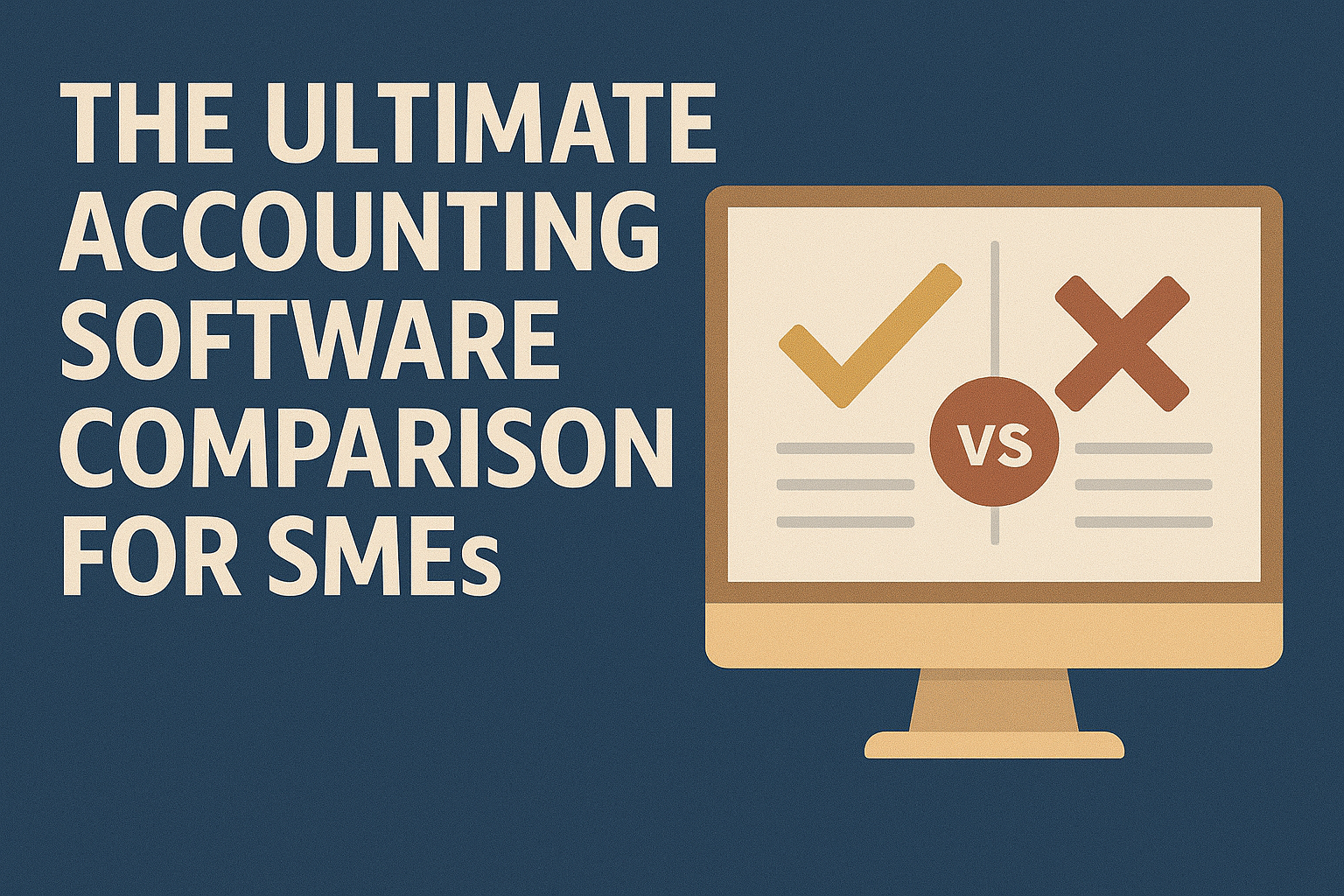
Choosing accounting software isn’t just about picking a digital tool — it’s about selecting the financial backbone of your business. For SMEs, the right system can be the difference between clean, real-time visibility and endless back-office chaos.
But with so many products on the market, it can be hard to know where to start. Should you go for something simple? Or invest in a solution that grows with your business?
Let’s break down what really matters when comparing accounting software — and where ccMonet fits in.
When evaluating accounting platforms, it’s easy to get distracted by fancy features or promotional pricing. Instead, focus on a few key questions:
These are the real make-or-break factors that determine whether a system will support your business or slow it down.
QuickBooks Online is one of the most widely adopted accounting systems for SMEs. It’s well-established, integrates with many third-party tools, and most accountants are familiar with it. The downside is that costs can increase quickly as transaction volume or complexity grows.
Xero is another strong contender, known for its intuitive design and excellent integration ecosystem. It’s especially popular among SMEs looking for a modern, flexible solution.
Zoho Books works best for companies already using Zoho’s ecosystem — such as CRM or inventory tools. It’s affordable and easy to use, though it can feel limited for more complex financial structures.
Wave is a lightweight, low-cost option for very small businesses. It covers the basics well but lacks the advanced automation, compliance, and scalability features needed for larger operations.
Traditional ERP systems like Sage or SAP Business One are powerful and ideal for larger, more complex organizations. But they can be expensive, slow to implement, and often require expert support.
And then there’s ccMonet — an AI-powered bookkeeping automation platform built specifically for SMEs. Instead of trying to replace your accounting software, it integrates with tools like QuickBooks or Xero to handle repetitive, time-consuming tasks automatically. Think invoice scanning, expense categorization, reconciliation, and real-time reporting — without heavy training or complicated workflows.
What sets ccMonet apart isn’t just that it’s modern — it’s that it sits on top of your existing accounting system and eliminates the grunt work.
Many businesses waste hours every week manually uploading receipts, matching transactions, or waiting for month-end to understand their numbers. ccMonet automates those steps, giving you clean, structured financial data in real time.
This means:
If your business is small and just starting out, a simple system like Wave or Zoho might be enough.
If you’re growing quickly and need flexibility, QuickBooks or Xero are strong, reliable options.
If your business structure is complex, traditional ERP solutions might make sense — though they require more investment.
But for most SMEs looking to scale efficiently, adding an automation layer like ccMonet on top of an existing accounting system offers the best balance of simplicity, speed, and control.
ccMonet is not just accounting software — it’s an automation engine designed to help SMEs eliminate manual work, stay compliant, and gain financial clarity.
There’s no single “best” accounting software for every SME. The right choice depends on your size, complexity, and growth plans.
But the future of bookkeeping isn’t manual. It’s automated. By pairing your accounting software with a smart automation platform like ccMonet, you can run leaner operations, make faster decisions, and focus on what really matters — growing your business.
👉 Learn more about ccMonet and see how automation can transform the way your team handles accounting.